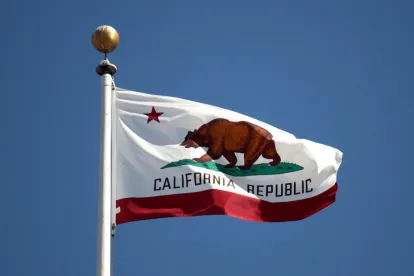In anticipation of three new laws, most California employers will have to modify their employment applications and hiring protocols by year-end. Assembly Bill No. 1008 restricts inquiries into criminal conviction histories and requires immediate action by human resources and recruiting personnel. Assembly Bill No. 168 prohibits employers from inquiring about an applicant's salary history and relying upon salary history when deciding whether to offer an applicant a job or what salary to offer. As year-end salary reviews occur over the next two months, employers must be cognizant of what factors they can and cannot consider. Similarly, the San Francisco "Parity in Pay Ordinance" prohibits employers from asking applicants about their salary histories, and that Ordinance becomes effective July 1, 2018 Summaries of these new laws appear below.
Criminal Convictions: AB NO. 1008/California Government Code Section 12952
When Is This New California Law Effective?
January 1, 2018.
What Are Employers Prohibited From Doing Under Government Code Section 12952?
All California employers with five or more employees, including state or local government employers, are prohibited from:
-
Asking orally or in writing for an applicant's criminal conviction history prior to a conditional offer of employment to the applicant; and
-
Considering, distributing, or disseminating information about any of the following while conducting a background check following a conditional offer of employment:
-
An arrest not followed by a conviction, except that employers at health facilities may ask applicants for positions with regular access to patients to disclose an arrest under the Sex Offender Registration Act, and may ask applicants seeking positions with access to drugs and medication to disclose an arrest under certain sections of the California Health and Safety Code.
-
Referral to or participation in a pre-trial or post-trial diversion program.
-
Convictions that have been sealed, dismissed, expunged, or statutorily eradicated pursuant to law.
-
May Employers Consider Conviction History After A Conditional Offer Is Made?
Yes. However, if the applicant's conviction history is a factor in denying employment to the applicant, Section 12952 requires the employer to assess whether the individual applicant's conviction history has a "direct and adverse relationship with the specific duties of the job that justify denying the applicant the position." This individualized assessment must consider the nature and gravity of the criminal offense, the time that has passed since the offense and the completion of the sentence, and the nature of the job sought.
Can Employers Rescind A Conditional Offer Of Employment Due To Conviction History?
Yes, if certain steps are followed. If an employer makes a preliminary decision that the applicant's conviction history disqualifies the applicant from employment, the employer must notify the applicant of this preliminary decision in writing and the notification shall contain all of the following:
-
Notice of the disqualifying conviction(s) forming the basis for the preliminary decision to rescind the offer.
-
A copy of the conviction history report, if any.
-
An explanation of the applicant's right to respond to the notice of the employer's preliminary decision before that decision becomes final, and a deadline which must allow the applicant at least five business days by which to respond, with five additional business days if the applicant notifies the employer that the applicant disputes the accuracy of the conviction history report.
The employer is required to consider the applicant's response to the notice before making a final decision. Employers in Los Angeles are also required, under the Los Angeles Fair Chance Initiative for Hiring, to document their individualized assessment and provide the applicant with a copy of it before making a final decision to deny an application. If the employer's final decision is to deny an application solely or in part because of the applicant's conviction history, the employer must notify the applicant in writing of all of the following:
-
The final denial or disqualification;
-
Any existing procedure the employer has for the applicant to challenge the decision or request reconsideration; and
-
The applicant's right to file a complaint with the Department of Fair Employment and Housing.
What Is An Employer's Liability For Violating Section 12952?
An aggrieved individual may sue for the full range of damages available under the California Fair Employment and Housing Act, including compensatory damages, punitive damages, attorneys' fees, and costs.
Salary History: AB NO. 168/California Labor Code Section 432.3
When Is This New California Law Effective?
January 1, 2018.
What Are Employers Prohibited From Doing Under Labor Code Section 432.3?
All California employers, including state and local government employers, are prohibited from:
-
Asking orally or in writing, personally or through an agent, for an applicant's salary history information; and
-
Relying on an applicant's salary history information as a factor in determining whether to offer them employment or what salary to offer them.
What Happens If An Applicant Voluntarily Discloses His/Her Salary History?
An applicant is not prohibited from voluntarily, and without prompting, disclosing his/her salary history to a prospective employer.
In the event an applicant voluntarily discloses this information, the employer is not prohibited from considering and relying on that information in determining the salary for the applicant.
However, consistent with Labor Code section 1197.5, the employer cannot use an applicant's prior salary, by itself, to justify any disparity in compensation.
What Else Are Employers Required To Do Under This New Law?
Upon reasonable request, an employer must provide the pay scale for a position to an applicant.
San Francisco's Parity in Pay Ordinance
When Does The Ordinance Go Into Effect?
July 1, 2018.
What Are Employers Prohibited From Doing Under San Francisco's Ordinance?
San Francisco's "Parity in Pay Ordinance" prohibits San Francisco employers from:
-
Inquiring, personally or through an agent, about an applicant's salary history;
-
Refusing to hire or retaliating against an applicant for not disclosing his/her salary;
-
Considering or relying on an applicant's salary history as a factor in determining whether to offer employment to an applicant or what salary to offer; and
-
Releasing a current or former employee's salary history to that person's prospective employer without written authorization from the current or former employee (unless release is required by law, is part of a publicly available record, or subject to a collective bargaining agreement).
Which Employers Are Covered By The Ordinance?
The Ordinance covers any individual or entity which is required to be registered to do business in the City of San Francisco, including job placement, referral and other employment agencies. The Ordinance states that the definition of "Employer" does not include any unit of local, state or federal government, except that it does include the City of San Francisco.
Which Individuals Are Protected By The Ordinance?
This Ordinance protects any person who applies for employment to be performed in the geographic boundaries of the City of San Francisco, and whose application, in whole or in part, will be solicited, received, processed, or considered, whether or not through an interview, in the City of San Francisco. The employment sought may be temporary, seasonal, part-time or full-time and includes work obtained through the services of temporary or employment agencies. Independent contractors, however, are not protected by the Ordinance.
What If An Applicant Voluntarily Discloses His/Her Salary To A Prospective Employer Without Being Asked?
The Ordinance does not prohibit an applicant from voluntarily, and without prompting, disclosing his/her salary history. The employer is not prohibited from considering salary history in determining this applicant's salary. However, salary history shall not be used to justify paying any employee of a different sex, race or ethnicity less than such applicant or prospective employee for doing substantially similar work under similar working conditions in accordance with California's Fair Pay Act.
What Else Must Employers Do To Comply With The Ordinance?
Employers must post a notice informing applicants and employees of their rights under this Ordinance in a conspicuous place at their workplaces.
Who May Enforce The Ordinance?
The Office of Labor Standards Enforcement (OLSE) enforces the Ordinance and may refer a case to the City Attorney to initiate a civil action if it determines that "prompt compliance is not forthcoming."
What Are The Penalties For Non-Compliance?
From July 1, 2018 through June 30, 2019, the OLSE will issue a warning and notice to correct a violation.
Starting July 1, 2019, for any subsequent violation (including a first violation occurring before that date), the OLSE may impose an administrative penalty of $100 for each employee or applicant to whom the violation occurred, $200 for the next violation that occurs within 12 months of the first, and then $500 for each additional violation.
The City Attorney may seek any such legal or equitable relief in a civil action as may be appropriate to remedy the violation.
NEXT STEPS FOR CALIFORNIA EMPLOYERS
All California employers should review and update their employment applications, reference and background check procedures, and hiring protocols to comply with these new legal requirements. In addition, all human resources personnel and those involved in applicant interviews should be educated and trained on these restrictions.



 />i
/>i

